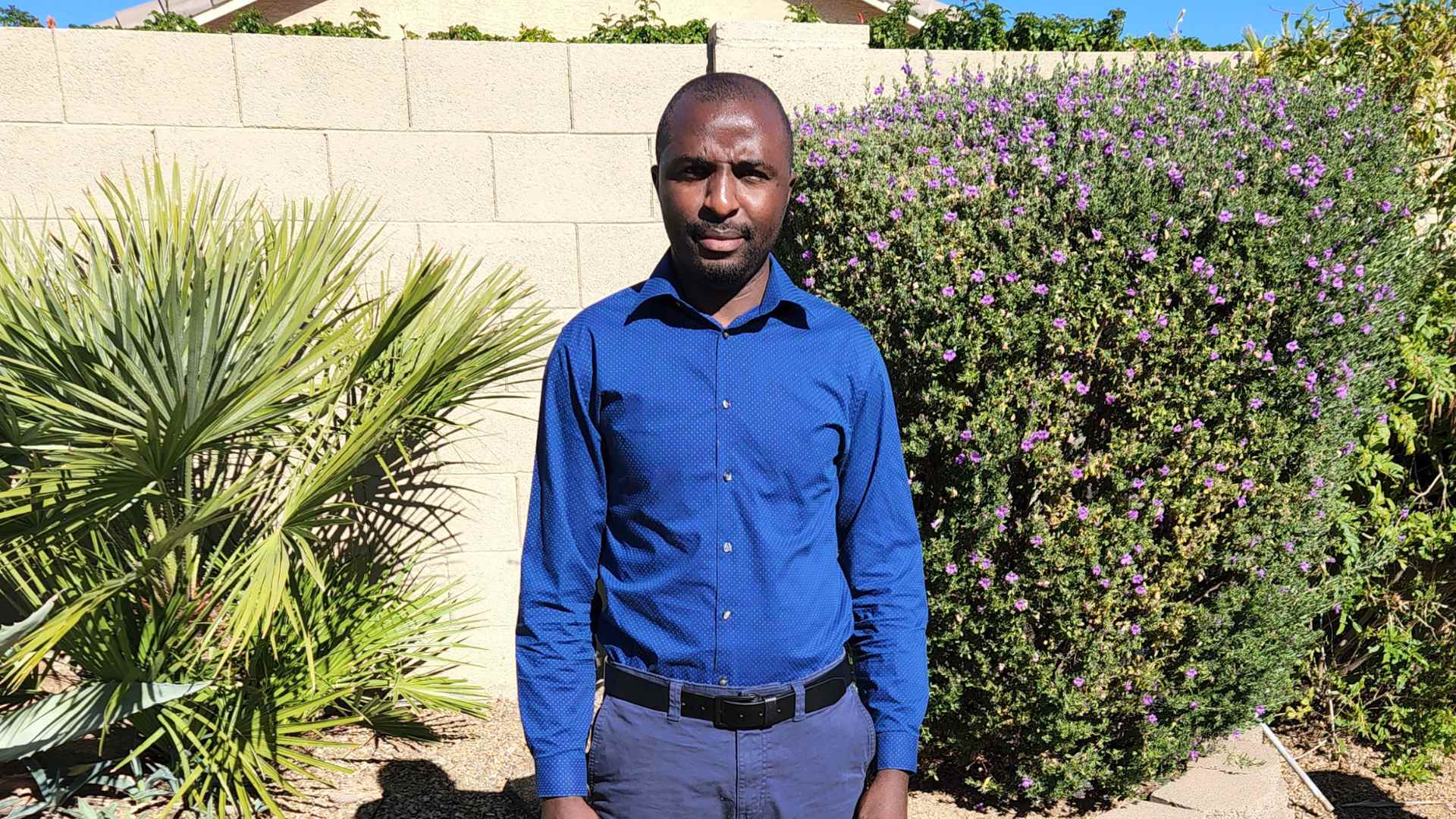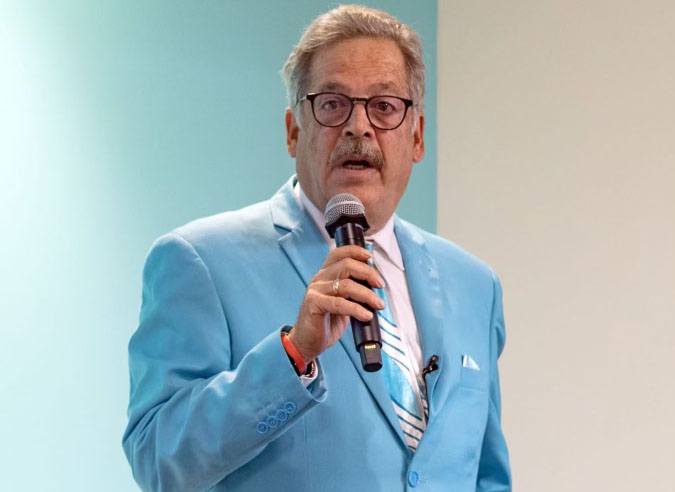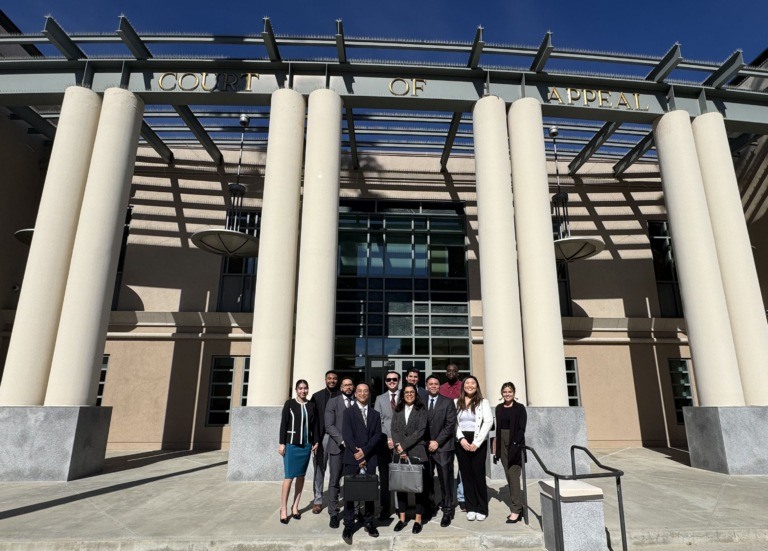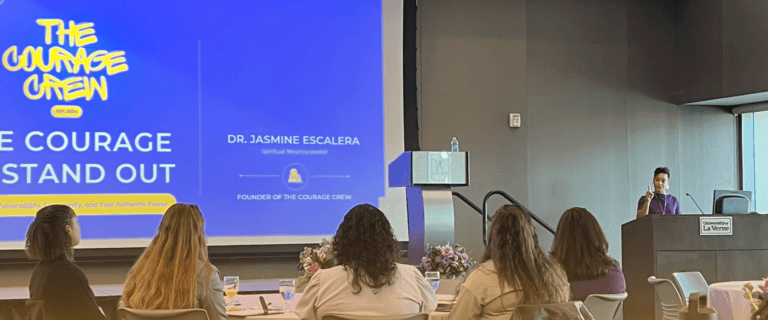College of Law Wins Asylum for Ugandan Man

The University of La Verne College of Law’s Justice and Immigration Clinic (JIC) has helped secure asylum in the United States for a man who said he was arrested and tortured for political activity in his home country of Uganda.
The asylum ruling for Peter Muhumuza followed four years of legal hearings in federal immigration court, during which time students and faculty from the JIC provided him with free, high quality, legal support he would otherwise have been unable to access or afford.
“It’s because of the Justice and Immigration Clinic that my entire life has been relieved,” he said. “This was my last hope. I can now legally live in United States peacefully and freely.”
The JIC provides pro bono, or free-of-charge, legal representation to select noncitizens who need assistance with matters in United States immigration courts. Law students who participate in the clinic gain real-world experience under the supervision of Professor Krystal Rodriguez-Campos.
For Muhumuza, students assisted with client communication, including interviewing and counseling, case planning, and the development of case strategy related to his application for asylum. They drafted client declarations, gathered evidence, including witness statements and expert reports, conducted legal research, and wrote legal briefs.
Muhumuza, 30, a political activist, fled Uganda due to political persecution and fear for his life, he said. During a rally, he opposed the Ugandan regime and what he believed were injustices in the country. He said he was arrested as retribution and taken to military barracks, where he was tortured.
He was released and warned to cease his political demonstrations, but he disobeyed and continued to speak out against the government, he said. After ongoing threats to him and his family, he fled to seek asylum and an education in the United States, he said.
In 2018, Muhumuza’s asylum case was referred to an immigration judge by an asylum officer. He was initially alone, suffering from post-traumatic stress disorder, and knew he needed to seek help.
“I had no legal representation due to lack of funds, but the JIC picked me up at a time when I was hopeless and my life was in pieces,” Muhumuza said.
His case took four years to complete due to a multitude of factors, including the expansive backlog of immigration court cases; rescheduling of hearings; a transfer to a different courthouse; a reassignment to a new judge; and the COVID-19 pandemic.
The JIC took his case in 2018. Rodriguez-Campos led the work with assistance from close to a dozen law students.
“I think he’s a prime example of why we have asylum law,” she said. “Why our country has historically provided a safe haven for individuals fleeing repression and persecution in their home country. He reminds us why we need to, as attorneys and law students in the US, really continue advocating for better asylum and immigration laws as a whole.”
Asylum cases are notoriously difficult to win, Rodriguez-Campus said. For example, the judge who heard Muhumuza’s case had a 44.1 percent rate of asylum approvals.
Yunuen Trujillo, JD ’19, was one of the students who worked on the case. She drafted his declaration and sought experts to confirm his story, among other duties.
“This was the first immigration case I ever worked on and it gave me all the practical, foundational knowledge needed to become an immigration attorney,” Trujillo said.
She now works for a large nonprofit, the Coalition for Humane Immigrant Rights of Los Angeles, supporting criminal defense cases, and serves as the supervising attorney for the organization’s new office in San Bernardino, California.
As a result of receiving asylum, Muhumuza is protected from being deported to Uganda, is authorized to work in the United States, may apply for a Social Security card, may request permission to travel overseas, and can petition to bring family members to the United States. He plans to complete his bachelor’s degree in nursing.
“I wish this clinic could last forever to help people with immigration representation, because what the students and professors do is incredible and restores hope to the hopeless,” he said.


